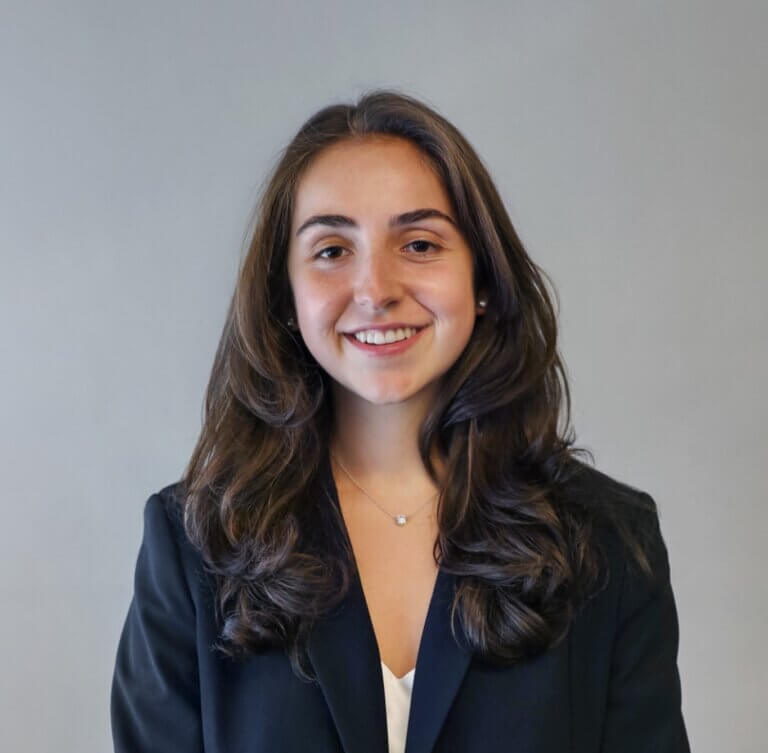Sophia Petrovas
Finance major
Economics minor

What have you enjoyed most about your area of study? Was there a particular discovery, new skill or way of thinking, or insight that you found especially valuable? Please share an example from your favorite class or experience.
Studying economics gave me a powerful lens to understand healthcare systems and the barriers to access for innovative treatments. In Professor Gruber’s Public Finance & Public Policy class, I was especially drawn to insurance markets – learning about moral hazard, adverse selection, and economic trade-offs. These topics became deeply relevant to my research with Professor Andrew Lo on gene therapies, where I explored the different payment models and how to reimburse for ultra-rare disease treatments. My passion lies in understanding how we can better finance and expand coverage for life-saving therapies that don’t fit traditional models.
How does the knowledge from this field, or your interest in it, combine with your other major or minor studies at MIT?
Economics has been a natural complement to my finance studies and has helped me understand not just the numbers, but the broader context behind them. While finance gave me tools to analyze markets and make decisions, economics helped me think more deeply about what drives those decisions, like incentives, information gaps, and market inefficiencies. Together, they’ve allowed me to approach problems with a more complete perspective. Whether I’m evaluating an investment or thinking about how to bring a new healthcare innovation to market, combining both fields has helped me assess risk more thoughtfully and build solutions that are practical, long-term, and grounded in how systems work.
An MIT education includes study in the scientific, technical, social science, arts, and humanities fields. How do you think that wide range of knowledge and perspectives will be valuable to you – for your career success and for your enjoyment of life?
MIT’s broad curriculum has made me a stronger problem solver and a more curious thinker. Studying economics and finance sharpened my analytical skills, while courses in the humanities challenged me to consider context, culture, and human behavior. That combination has helped me approach problems from multiple angles – a skill that’s essential for my career in healthcare strategy and entrepreneurship. Beyond career impact, I’ve simply enjoyed learning across disciplines. It’s deepened my curiosity and given me a more thoughtful, well-rounded perspective on the world.
What are your plans for the future?
After graduation, I’ll be joining Guidehouse in Boston, working in life sciences consulting with a focus on commercializing gene therapies and navigating market access strategies. I’m especially excited to contribute to this space at a time of growth and transformation for the firm – Guidehouse was recently acquired by Bain Capital, positioning it to play an even greater role in shaping healthcare strategy. In the long term, I hope to build on this foundation and drive change on a global scale, building solutions that directly improve patients’ lives and help shape a more accessible, equitable future in healthcare. I came to MIT inspired by the idea of making an impact beyond myself, and I’m leaving with the tools and ambition to do exactly that.
